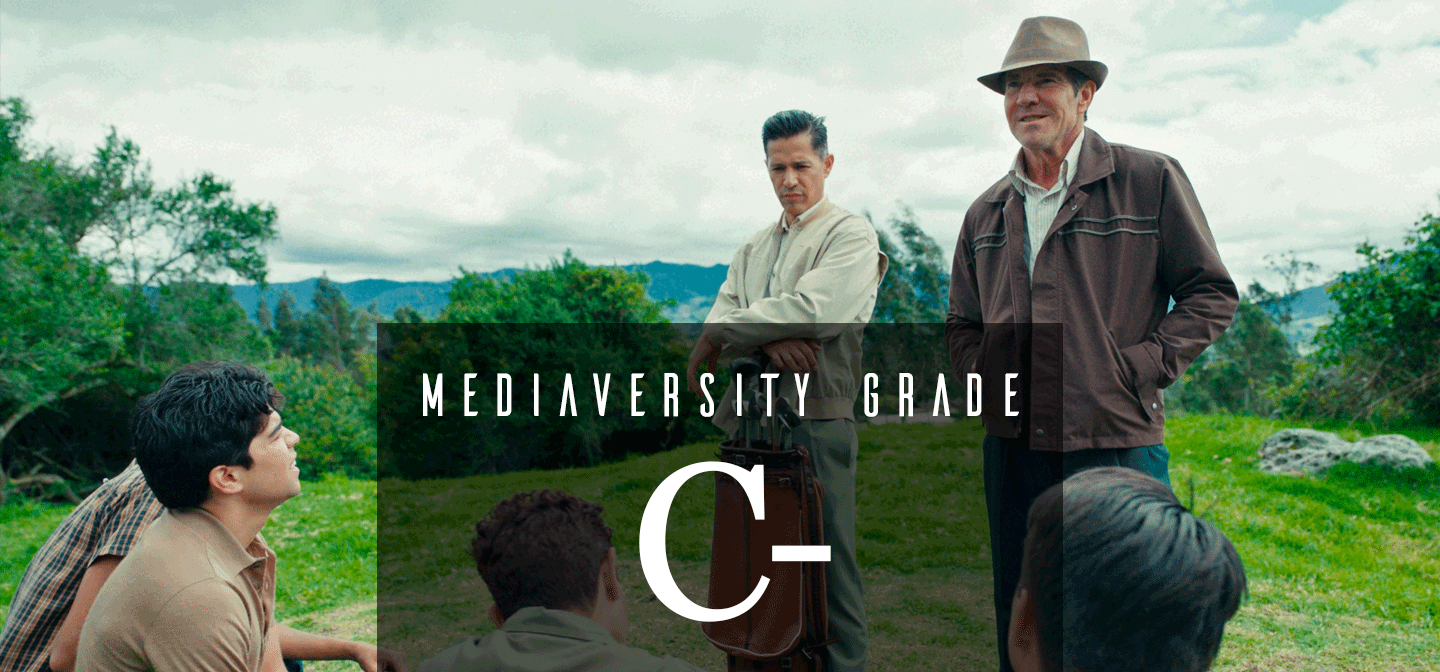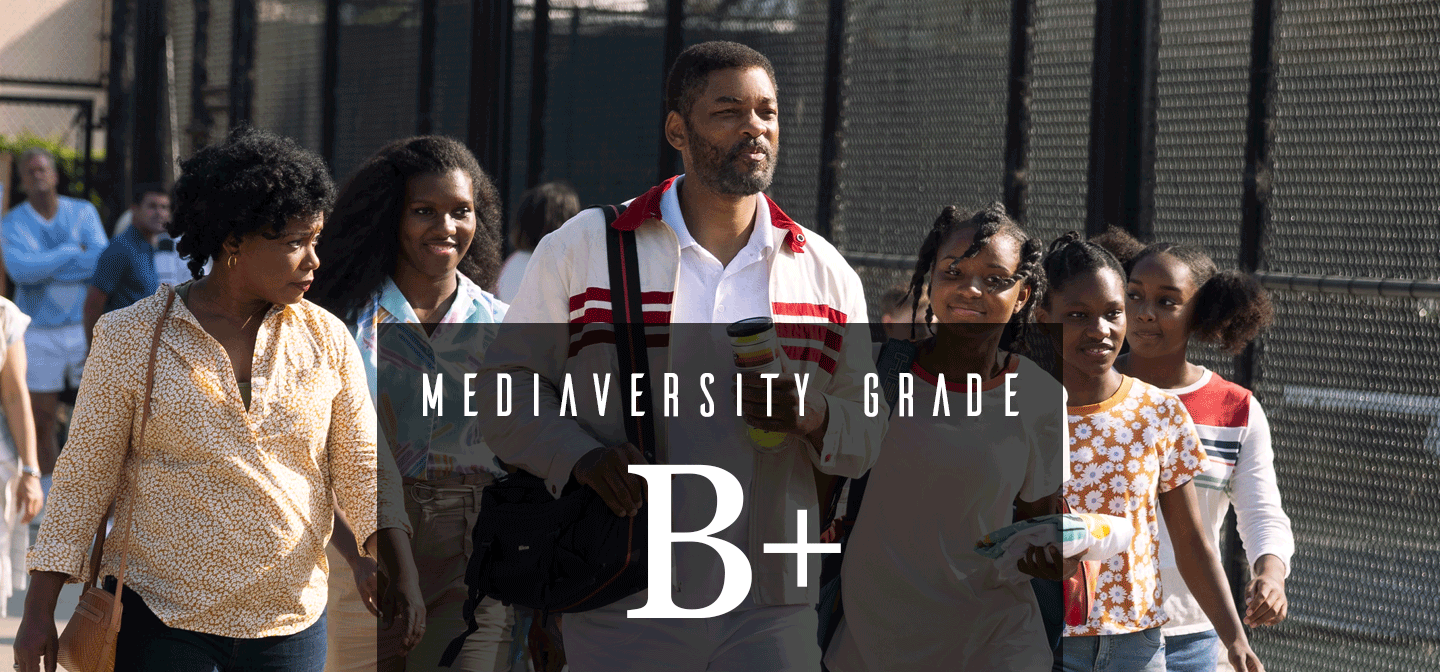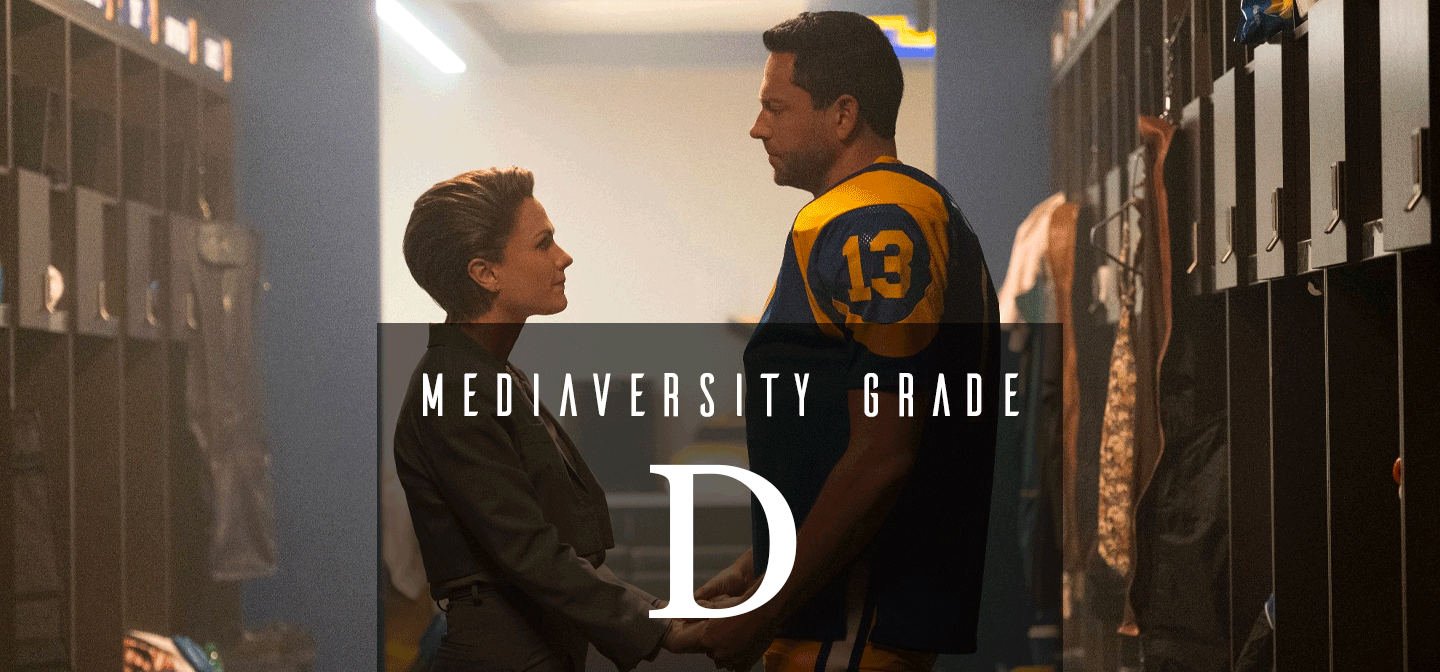The Long Game
“The Long Game resorts to Hollywood pitfalls of white saviors and respectability politics.”
Title: The Long Game (2023)
Director: Julio Quintana 👨🏽🇺🇸
Writers: Screenplay by Paco Farias 👨🏽🇺🇸 and Jennifer C. Stetson 👩🏼🇺🇸 based on the novel by Humberto G. Garcia 👨🏽🇺🇸
Reviewed by Li 👩🏻🇺🇸
—SPOILERS AHEAD—
Technical: 2.75/5
How many underdog sports movies have been made? Add The Long Game to the list, which premiered at SXSW 2023 earlier today. Julio Quintana’s film comes on the heels of other recents like Netflix’s The Swimmers (2022) or King Richard (2021) that rinse and repeat familiar Hollywood beats, modernized ever-so-slightly through “based on a true story” gravitas and culturally specific angles.
In this case, The Long Game—based on the novel Mustang Miracle by Humberto G. Garcia—follows a group of young Mexican American golfers in 1950s Del Rio, Texas, on their history-making run at state championships. In a predictable setup, viewers watch as the teens of San Felipe High School’s golf team, led by coach J.B. Peña (Jay Hernandez), face blatant racism as they learn to take the high road and impress the pants off everyone they meet.
Roteness aside, The Long Game enjoys lovely cinematography and a glossy sheen that further embeds this midcentury tale among other brightly colored predecessors like The Help (2011) or Hidden Figures (2017), full of folksy American accents and the good old days of overt racism, when Karen was just a name and TERF was some kind of grass. But when it comes to technical precision, director Quintana and editor James K. Crouch fall short. An overreliance on music montages to progress the plot gets tiresome after the second, third, fourth sequences. And the film’s simplistic writing can’t handle the multiple threads it chases, resulting in tonal confusion: In particular, the critique of racism in America feels at odds with its jingoism. In any given scene, you’ll find crisp stars and stripes flapping in front yards or backdrops, and the mentions of service among the armed forces come up more than necessary for a plot that centers around golfing glory.
In the end, it’s the true story that remains the film’s most intriguing piece. There’s no doubting the achievements of central figures like J.B., or his team’s most promising young athlete, Joe Trevino (Julian Works). But without these history-making men, The Long Game struggles to fend for itself.
Gender: 1.75/5
Does it pass the Bechdel Test? NOPE
Women appear solely as WAGS: “wives and girlfriends,” that is. None of their inner lives are explored. The closest we come is J.B.’s wife, Lucy Peña (Jaina Lee Ortiz), who follows a deeply stereotypical arc as a woman whose only desire is to become a mother. When the film reaches its cliched happy ending of men achieving victory, it’s (of course) accompanied by a glimpse of Lucy pregnant, round, and glowing.
Race: 4.5/5
Where The Long Game sets itself apart is its Mexican American heroes. Cuban American director Quintana adequately, if bluntly, sketches out the uncomfortable in-betweenness lived by the film’s lead characters—too brown to be American, even after serving in World Wars I and II, but too American to be Mexican, if a drunken local’s derision is any indication. (“¿Tu abuela no te enseñó español correctamente?”)
But this is about as complex as explorations of racial identity get. The Long Game racks up points almost entirely on the basis of superlative representation, including the casting of Mexican American actors into key roles such as Hernandez, who plays J.B., and Trevino, who plays teen prodigy Joe. Authenticity extends to behind-the-scenes creatives, with Latino writers like co-screenwriter Paco Farias and Garcia, who penned the original book.
Too bad, then, that this authentically Latino story still resorts to Hollywood pitfalls of white saviors and respectability politics. Dennis Quaid, who plays J.B.’s mentor Frank Mitchell, executes his role well, but the writing shoehorns him into scenes that ring false. At peak cringe, Frank takes J.B. aside and encourages the straight-laced man to break the rules sometimes, falsely equating his own brushes with the law to the repercussions J.B. would have to face as a Chicano in 1950s Texas were he to do the same.
It’s also hard to get behind the film’s muddled messaging that starts off by validating the rules set by white America. Early in the film, J.B. tells his students, "Shirts tucked in and a belt. No shorts. And lastly, I don't want to hear Spanish. You got to look and act like we belong here.” But soon enough, the hot-headed Joe, whose M.O. seems to be thwacking golf balls through glass windows whenever it strikes his mood, inspires J.B. to take more risks, even when it lands him in jail.
It’s one thing for the film to present the necessity of both paths—fighting the system from within, or smashing it altogether—but the writing level simply isn’t up to the task of balancing this nuanced debate. As a result, The Long Game feel confused about what it’s trying to say, as it aggrandizes both conformist and revolutionary tactics alike without ever managing to merge the two.
Deduction for Disability: -0.50
In its pursuit to create a slick Hollywood picture, Quintana frustratingly employs equally “classic” tropes. Disability is used as a narrative prop: Joe’s father, played by nondisabled actor Jimmy Gonzales, spends his screen time appearing desperately fearful that his son will try to pursue golf, rather than stick to what’s expected of Mexican American men. When the father-son friction comes to a head, Joe’s father gets thrown to the ground and in a sweeping aha! moment, the camera pulls back just far enough to reveal a prosthetic leg—the seeming culprit of his father’s emotional issues, as he cries from the ground, “They’re all laughing at you!” The assumption that a man with a prosthetic leg couldn’t possibly be well-adjusted feels uninspired.
Mediaversity Grade: C- 2.83/5
If you’re in the mood for something uplifting and sweet, The Long Game will probably scratch that itch. But if you need your sports heroes to be three-dimensional and believable, or your women as more than just vessels of fertility or emotional crutches for men, then you’re better off looking elsewhere.




